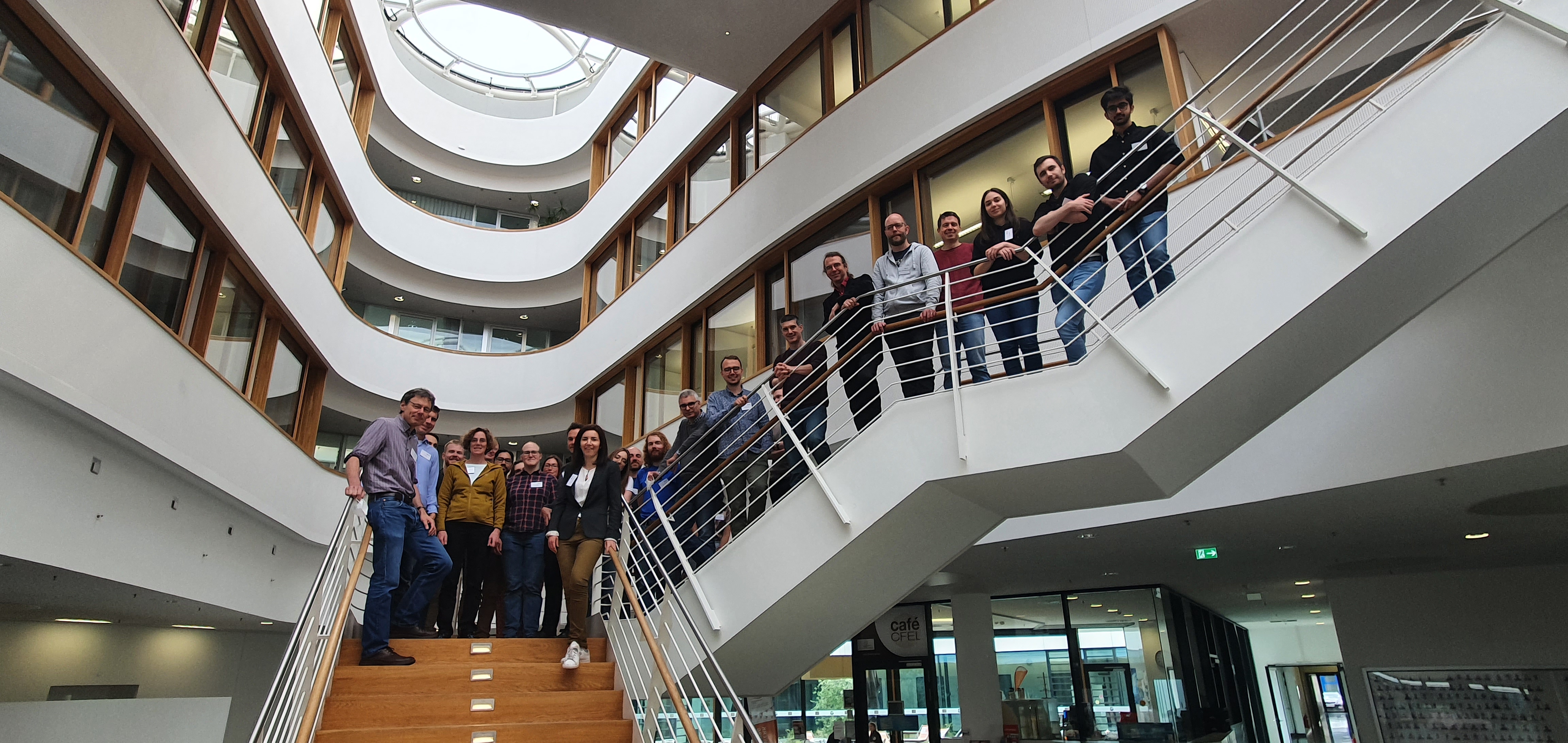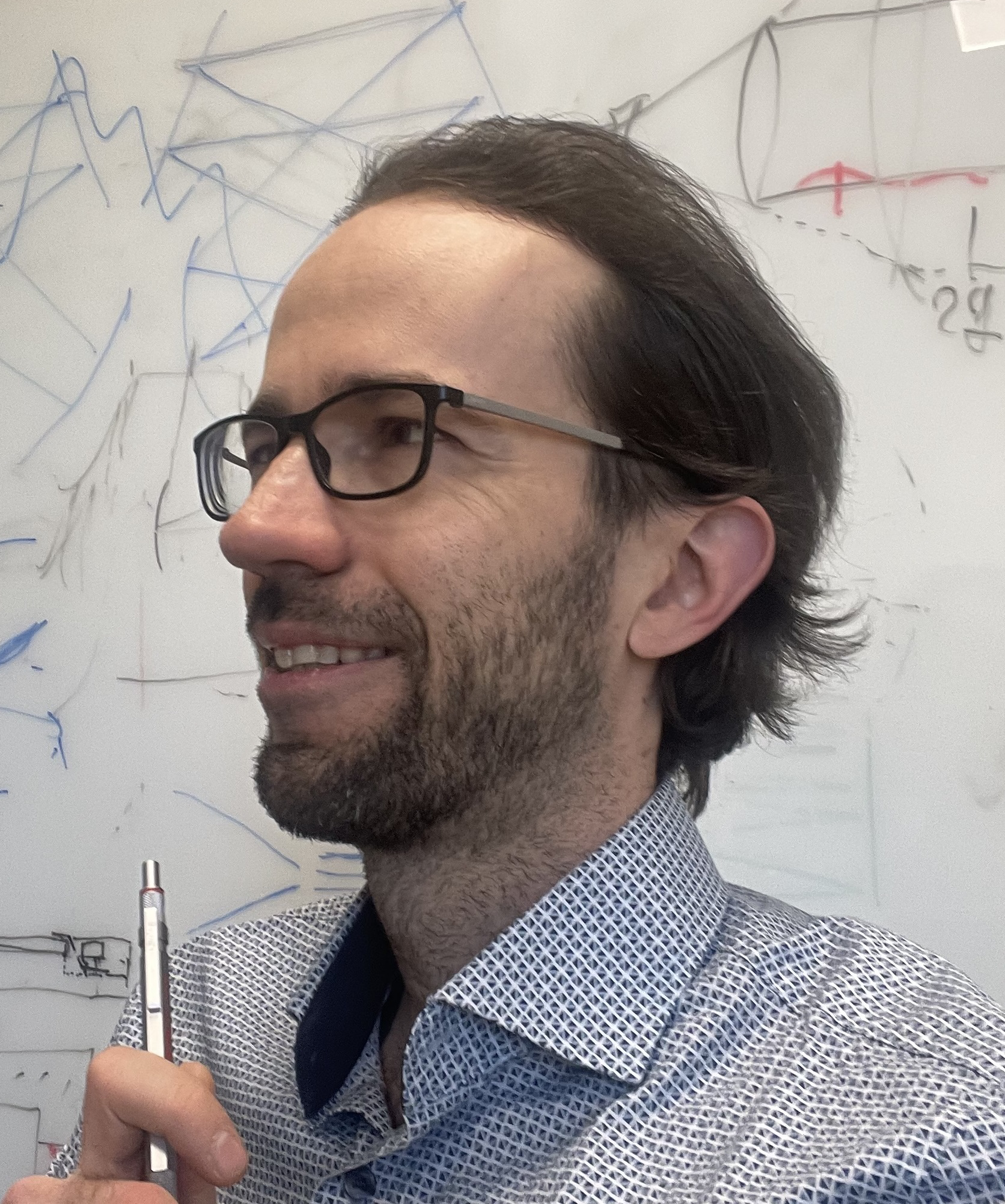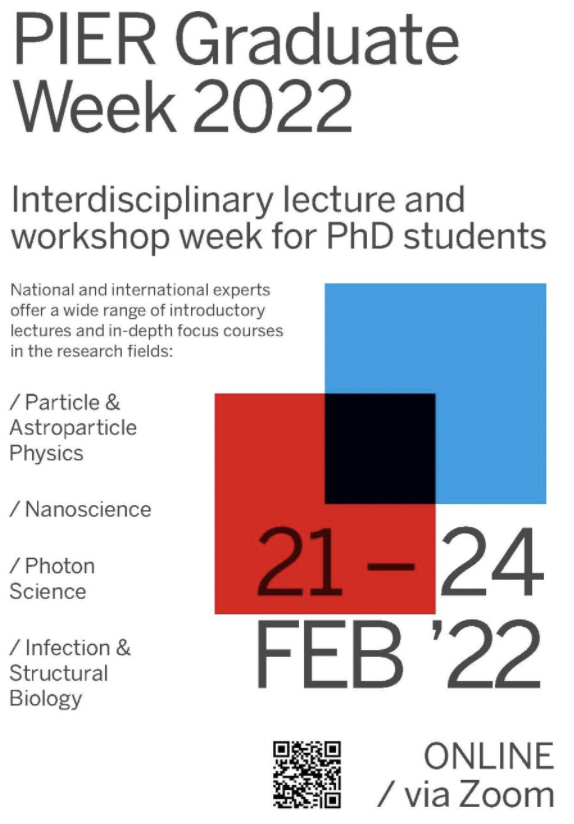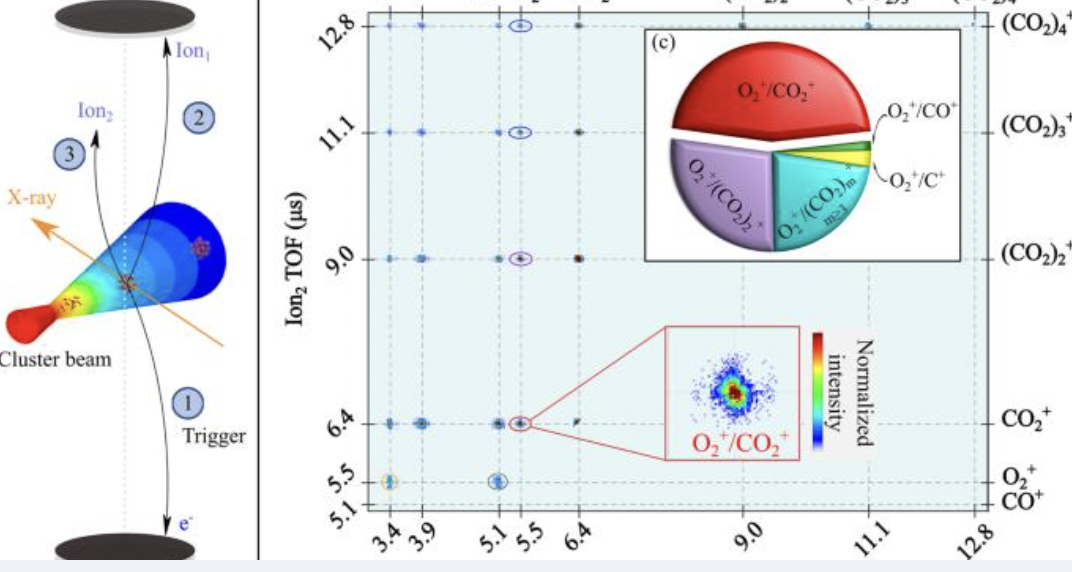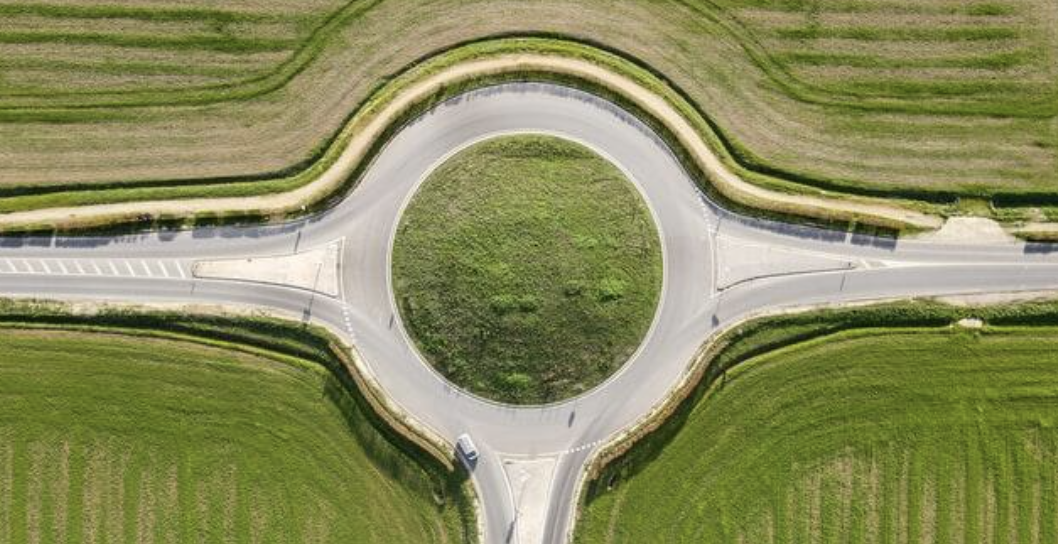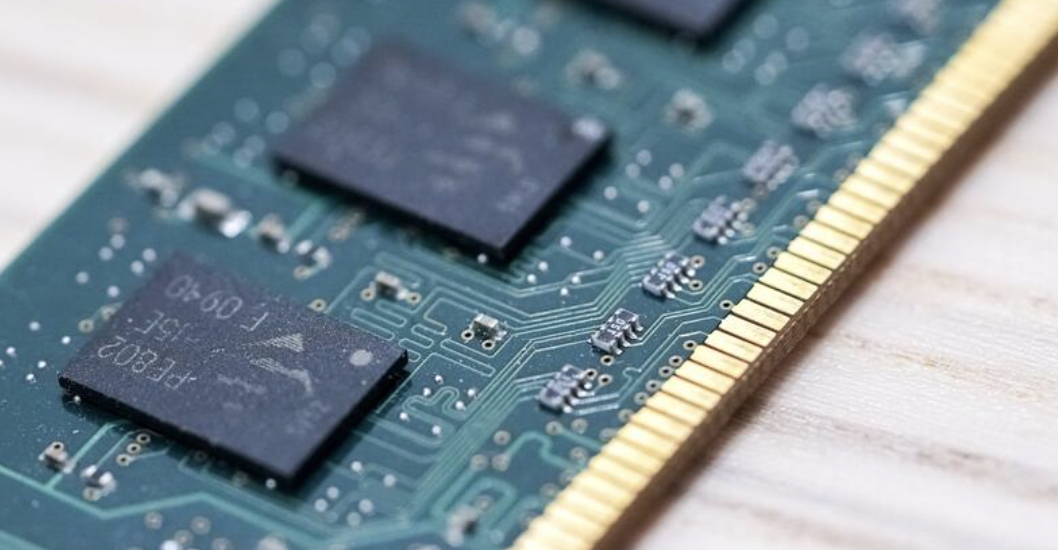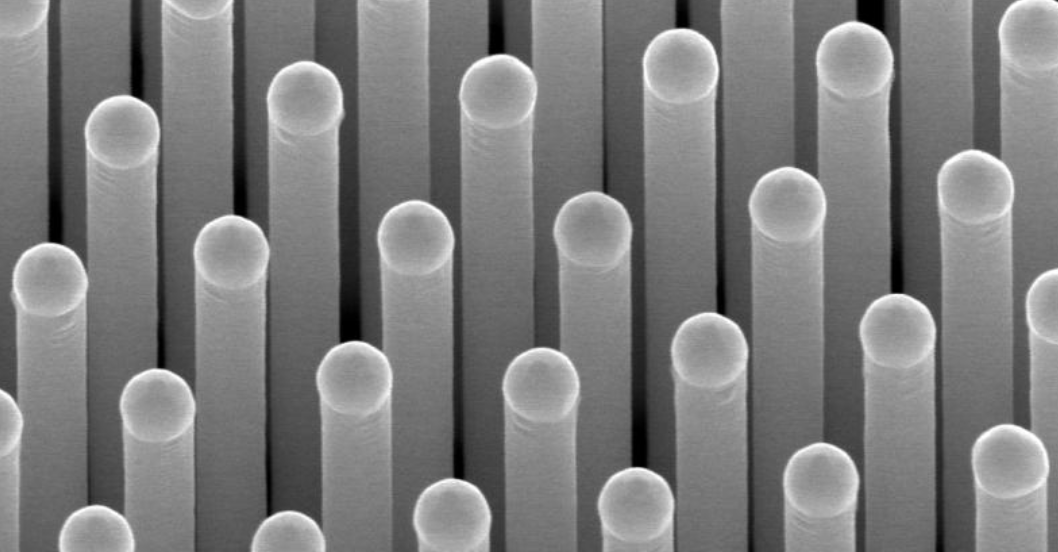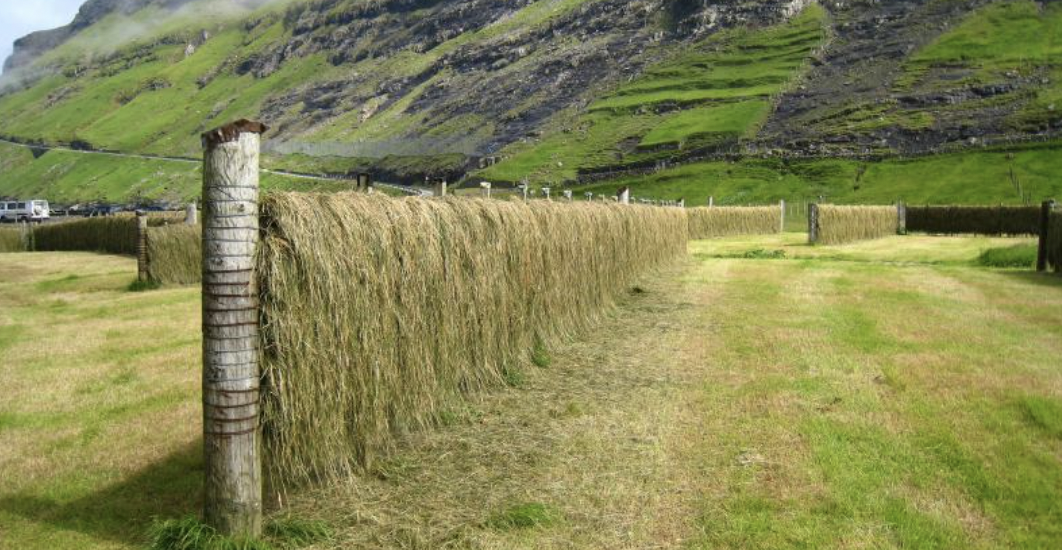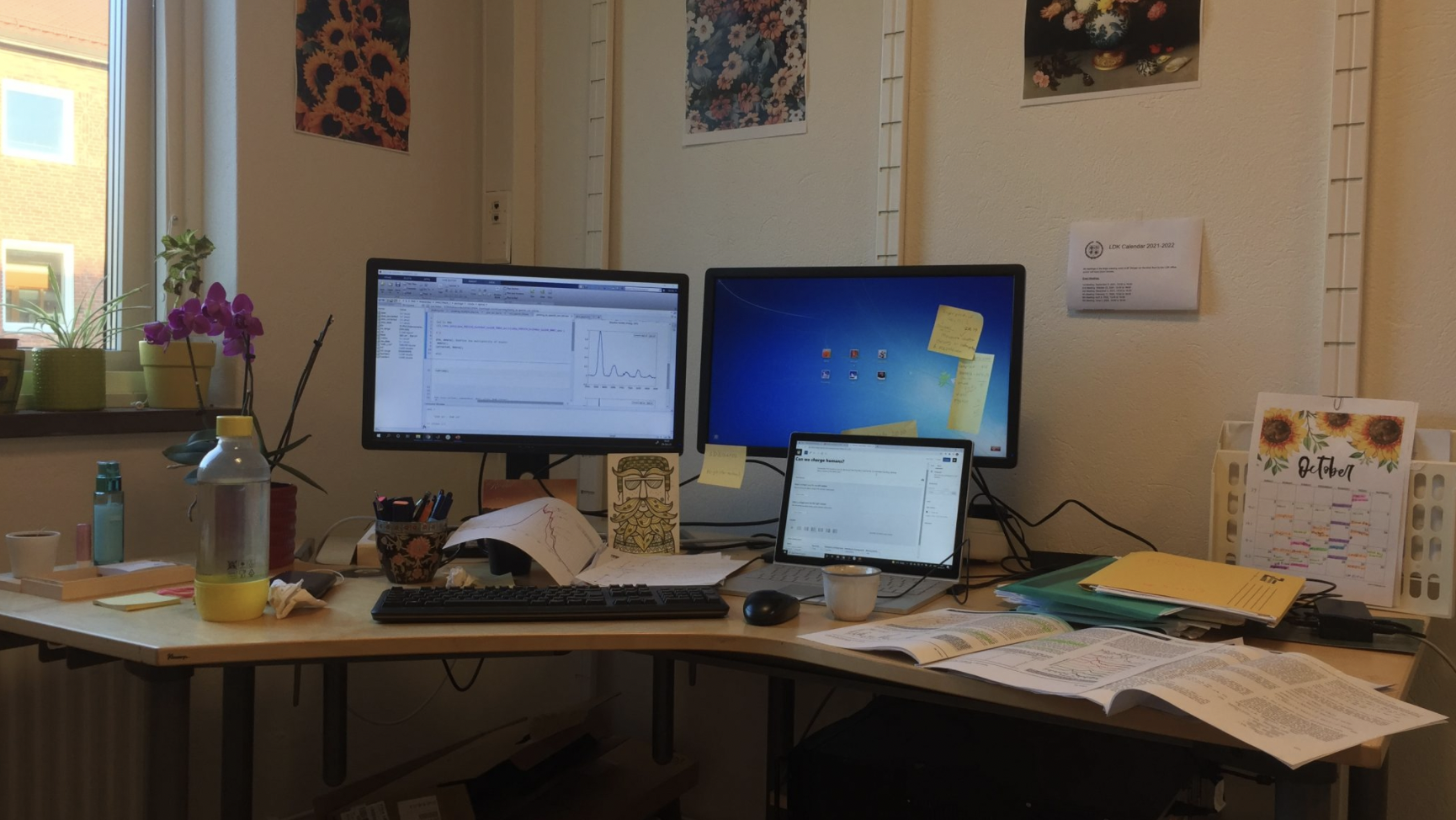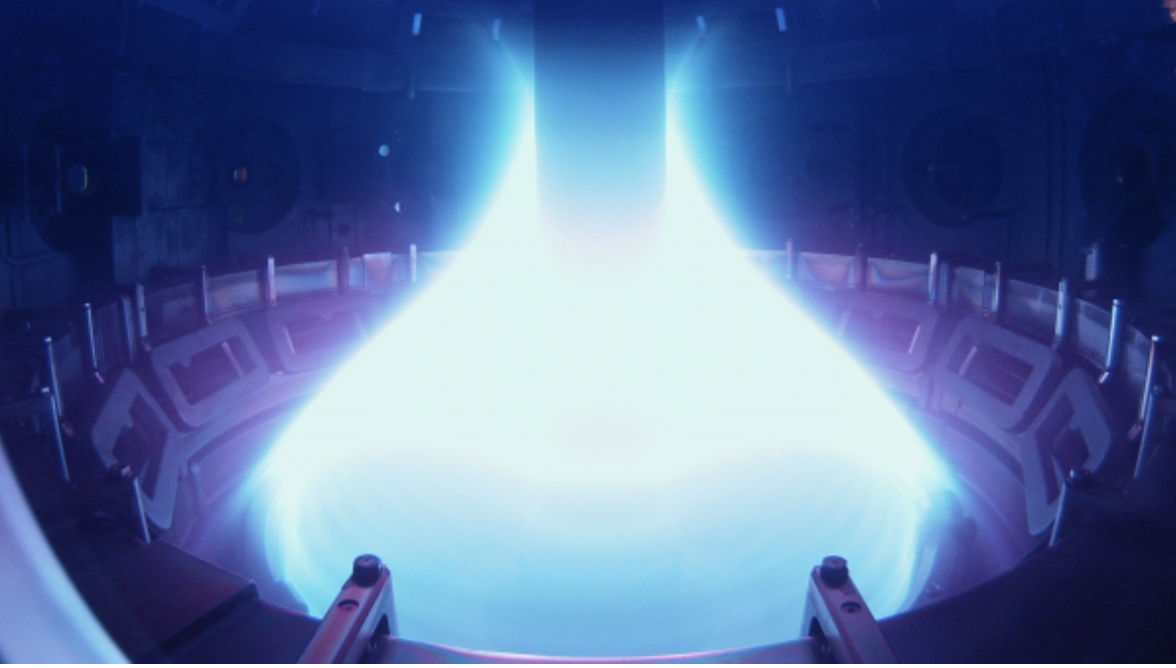News & Events
HELIOS Lund Retreat 2025
The HELIOS Lund Retreat 2025 took place from 5-9 May and brought together HELIOS doctoral researchers from Hamburg and Lund for a dynamic week of hands-on training, interdisciplinary exchange and community building - all centred around the theme of electronics.
The programme offered a deep dive into the fundamentals of electronics, including sessions on AC/DC circuits, solid-state devices, signal processing and circuit design. Students also explored the real-world applications of electronics in scientific research through a series of inspiring lectures and hands-on lab work.
The Raspberry Pi project, where students developed control systems and worked with LEDs and PID loops, was a key feature of the retreat. Complementing the technical content, a multi-part science communication workshop helped participants hone their skills in explaining complex research to a wider audience.
The retreat concluded with a career session in which HELIOS alumni who have moved into industry shared their professional experiences and insights, providing valuable guidance on navigating career paths beyond academia.
A big thank you to all the speakers, doctoral researchers, and to LINXS for being such a welcoming and professional host. The retreat once again highlighted the strength of the HELIOS community and the value of cross-border collaboration in advancing research and education.
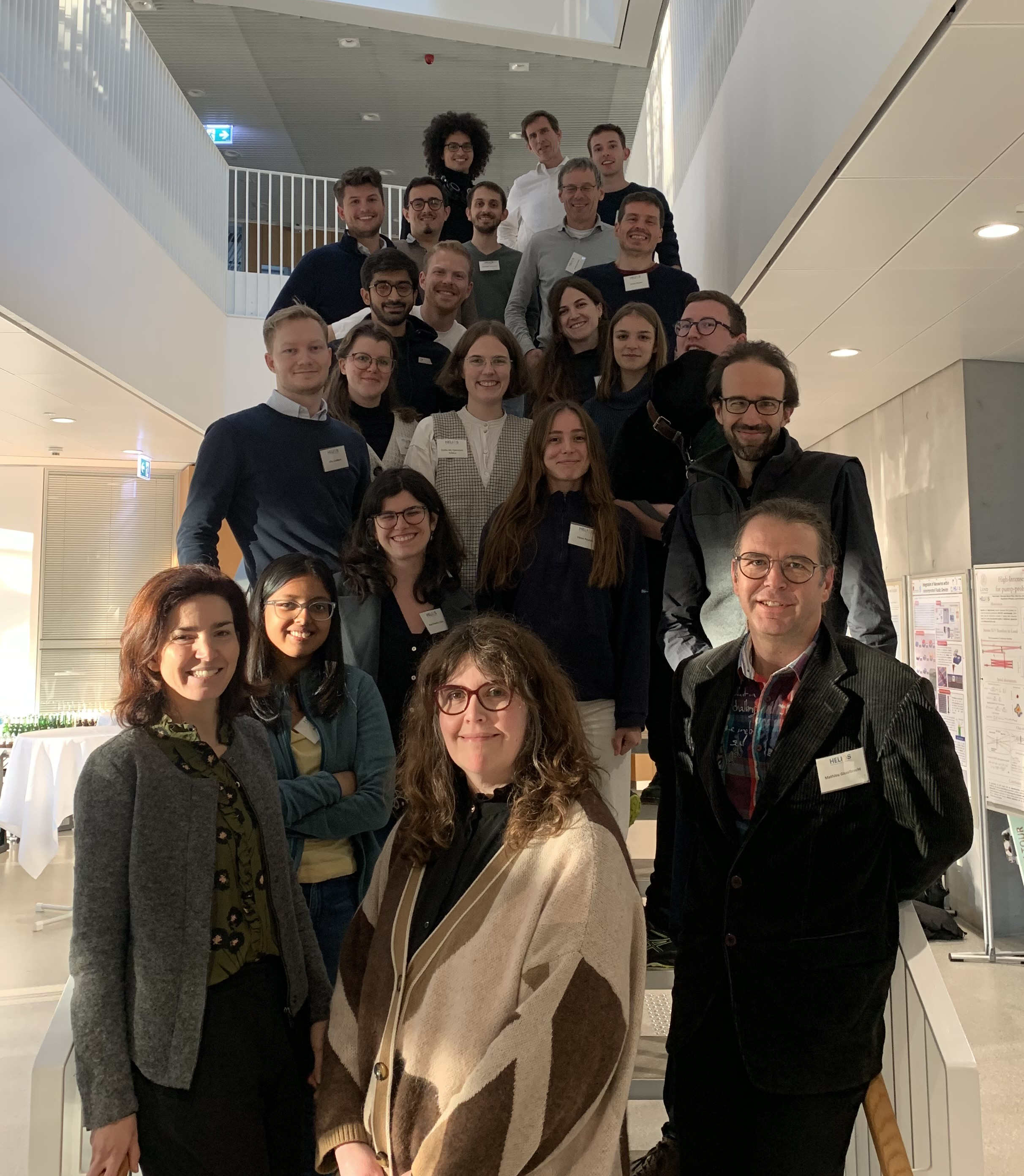
HELIOS Day 2024: A Day of Knowledge and Collaboration
On Tuesday, 15 October 2024, the HELIOS Day took place at Bahrenfeld Campus in Hamburg, bringing together senior scientists and PhD students for a full day of knowledge sharing, discussion and networking. PhD students from fields such as laser and molecular physics and nano- and nano-bio-sciences presented their latest research findings. The event also featured engaging poster sessions and concluded with valuable networking opportunities over dinner, fostering collaboration across disciplines.
We are already looking forward to the HELIOS Day 2025, which will take place in Lund.

PIER Graduate Week - 7-11 October 2024
The PIER Graduate Week is an interdisciplinary lecture and workshop week for young scientists, focusing on particle & astroparticle physics, nanoscience, photon science, and infection & structural biology. This year, the week offers two thematic blocs: modern accelerator and detector technologies and scientific computing using Python. Complementary soft skill courses are also included. The event is open to doctoral researchers, MSc students, postdoctoral researchers, and other interested scientists. The main goal is to provide young scientists on Bahrenfeld campus with the opportunity to broaden their interdisciplinary understanding and interact with colleagues from other research fields. Additional highlights include a colloquium on soft condensed matter by Prof. Dr. Detelf Lohse, an industry talk by Dr. Murali Ganesa, and soft skills workshops.
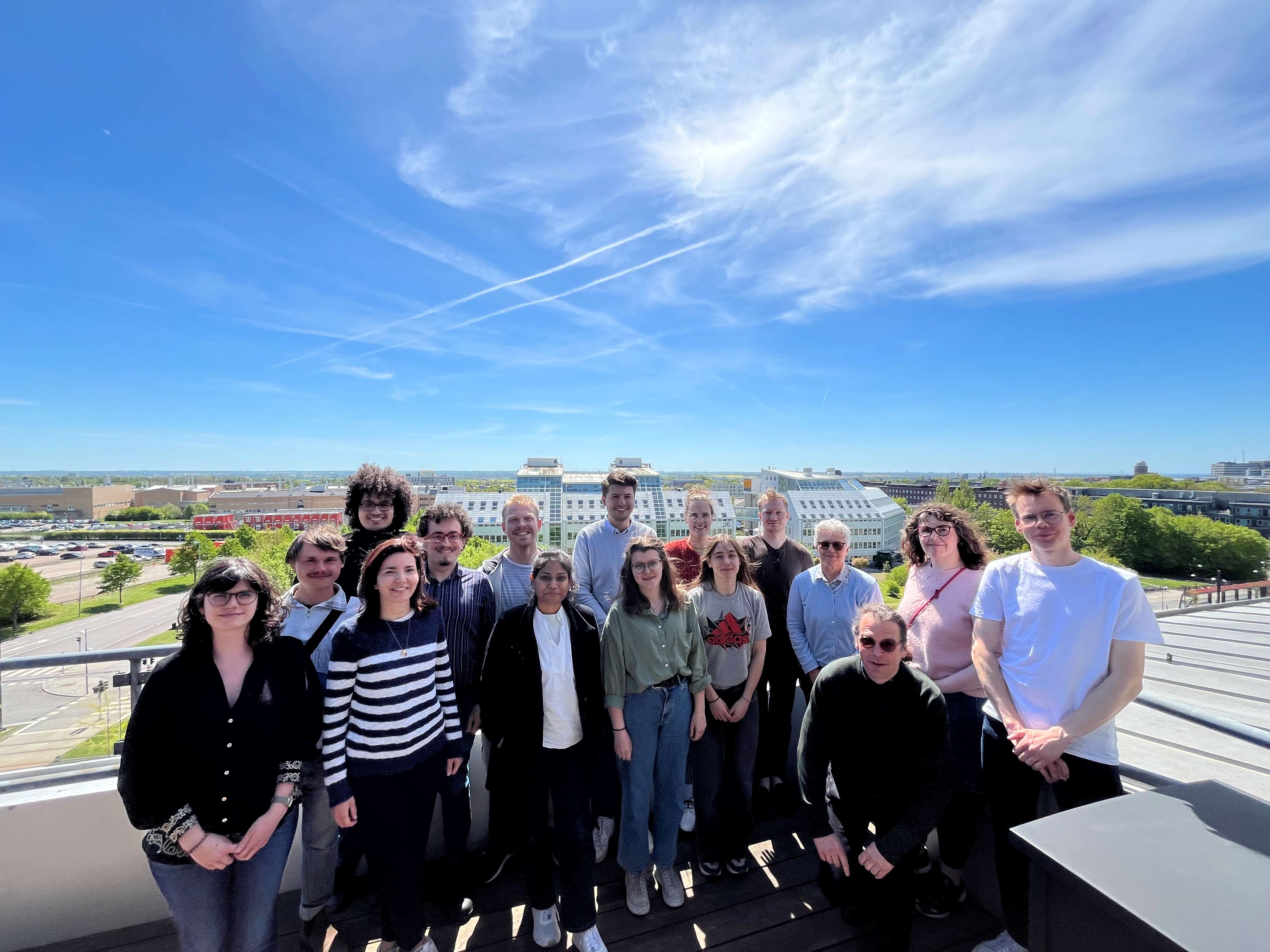
HELIOS Spring Retreat 2024
The HELIOS Spring Retreat 2024, held 13-17 May at LINXS in Lund, was a great success. The event brought together senior scientists and the second cohort of PhD researchers for an intensive week of training, knowledge sharing and networking opportunities.
Throughout the week, participants explored the theory and applications of instrumentation in photon and nanoscience and particle physics. One of the highlights was the inspiring lecture by Nobel Laureate Anne L'Huillier, who discussed the use of attosecond light pulses to study electron dynamics.
In addition to the scientific sessions, the retreat also focused on developing essential soft skills. On Thursday, the 'Finish on Time' workshop provided researchers with essential tools and strategies to confidently complete their PhDs on time. On Friday, 'Visualize Your Science' taught effective data visualisation and storytelling techniques.
Each day featured engaging sessions on specialised topics, hands-on workshops and ample opportunity for interactive Q&A sessions. The retreat also included a social dinner, giving attendees the opportunity to relax and network in a relaxed setting.
We would like to thank all the speakers for their valuable contributions. Without them, the event would not have been possible.
Special thanks to Anna Ntinidou (Dinidou), Josefin Martell and Shandana M. from the LINXS Institute of Advanced Neutron and X-ray Science for their incredible support in organising this retreat. This event successfully facilitated an enriching exchange of ideas, fostered new collaborations and strengthened the spirit of the HELIOS community. It was truly a memorable week!
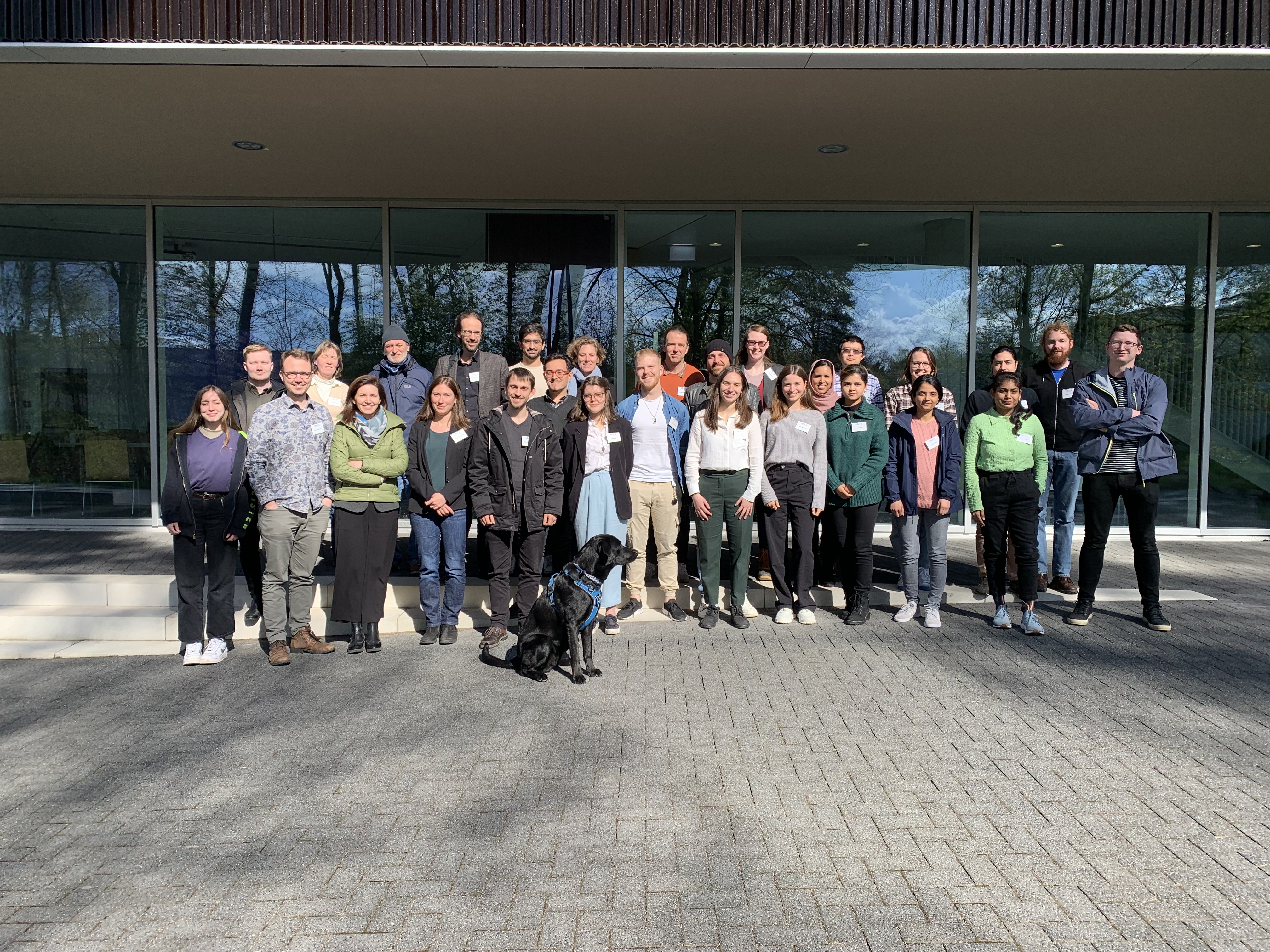
HELIOS Day and Spring Retreat 2023
The HELIOS Spring Retreat on "Data Science and Machine Learning" took place from 24-28 April in Hamburg. Renowned experts, including Marina Tropmann-Frick from HAW, Gregor Kasieczka from UHH and Peer Stelldinger from HAW, provided in-depth insights into the theoretical foundations of data science, neural networks, generative models and image processing. These discussions were complemented by applied examples presented by international luminaries such as Olga M. Conde Portilla from UC, Spain, Danilo Enoque Ferreira de Lima from EU XFEL, and Gabriel Gomila Lluch from UB, Spain, who shed light on the intersection of data science with photon and nanoscience and particle physics.
Mid-week, the HELIOS Day provided a platform for doctoral candidates and Principal Investigators (PIs) to showcase their cutting-edge research, fostering collaboration and knowledge exchange. An evening of networking over a social BBQ.
On Friday, the focus turned to career development, with doctoral candidates attending sessions on intellectual property, patents and career opportunities in industry. Insights from industry veterans such as Susanne Hagen from Philips and Hoan Wu from Nexperia enriched discussions on building effective CVs and navigating career paths. The day culminated in a thought-provoking panel discussion on the entrepreneurial landscape, underscoring the retreat's commitment to fostering holistic professional growth.
We extend our sincere appreciation to all speakers and participants for their invaluable contributions to this transformative week of learning and engagement. Until our paths cross again, may the spirit of HELIOS continue to illuminate our pursuit of excellence.
HELIOS Lund Retreat 2022
Our second HELIOS Lund training retreat in Lund took place on 10-14 October 2022. This year the the overall topic was "Electronics". We invited international experts to give fundamental and advance lectures on electronics, detectors, distributed control systems as well as CPUs and FPGAs. The afternoons were reserved for science communication and simulation courses.
An integral part of HELIOS is to connect our doctoral candidates with the industry to learn more about career options outside of academia. We invited Karola Dette from Elmos, Yu-Chen Cheng from Axis Communications AB and Katja Mankinen from CSC – IT Centre for Science to talk about their current jobs and how they got there.
We would like to thank LINXS for hosting our retreat. And a special thank you to their great events team that helped us with the organization.
1st June 2022
After almost two years, HELIOS had its first in person event in Hamburg. HELIOS academics and PhD students from Lund and Hamburg came together to catch up and learn more about the school’s progress and upcoming activities. We had great talks and posters from the PhD students on their research across the fields of photon science, particle physics and nano science. We are very proud to have such a diverse and ambitious group of doctoral candidates.
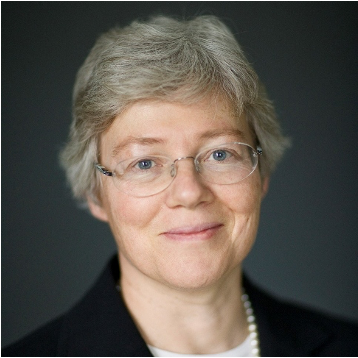
Wolf Prize in Physics for Anne L’Huillier
She shares the prize with professors Paul Corkum at the University of Ottawa in Canada and Ferenc Krausz at the Max Planck Institute for Quantum Optics in Germany. They were selected for their pioneering contributions to ultrafast laser science and attosecond physics.
It started in 1988, when Anne L’Huillier and her colleagues at CEA Saclay in France discovered high-order harmonics of light which was generated in a gas exposed to an intense laser field: “It was a bit of a coincidence. Our intention was to study fluorescence in the gas, but instead we saw these high-order harmonics. I found it very fascinating and really got stuck in exploring this new phenomenon, which is an interesting combination of atomic physics, more precisely the response of an atom to a strong laser field and non-linear optics.”
She moved to Lund University in 1995 where she became a full professor in 1997. In 2004 she was elected a member of the Royal Swedish Academy of Sciences. Her research group carries out, among other things, time-resolved spectroscopy experiments of quantum systems to provide a new fundamental scientific understanding of the dynamics inside atoms.

HALOS HELIOS Workshop - 20 April 2022
The Hanseatic League of Science (HALOS) and the Helmholtz-Lund International Graduate School (HELIOS) is holding their first joint Knowledge Exchange Workshop on 20 April 2022. The event will connect life scientists and physicists from the Baltic Sea region to exchange expertise and find common interests. The workshop is the first initiative to develop potential collaborations for future funding proposals and HALOS activities.

25th March 2022 - Open PhD Positions
Two PhD positions are available in Attosecond Physics, Ultrafast Optics and Ultrafast Dynamics at Lund University. A full description of the projects, admission requirements and application procedure can be found here:
Attosecond Physics and Ultrafast Optics: https://lu.varbi.com/en/what:job/jobID:479418/
Ultrafast dynamics of elementary processes in small quantum systems: https://lu.varbi.com/en/what:job/jobID:483046/
23rd March 2022
Congratulations to HELIOS PI Christoph Heyl for being named 'Emerging Leader' by JPhys Photonics in recognition of his contribution to the field of photonics. In the journal’s 'Emerging leader‘ special issue, Christoph’s invited paper ‘High-energy bow tie multi-pass cells for nonlinear spectral broadening applications' discusses pulse energy limitations of standard multi-pass cells (MPCs) considering basic geometrical scaling principles and introduce a novel energy scaling method using a MPC arranged in a bow tie geometry.
PIER Graduate Week
The PIER Graduate Week is taking place on 21-24 February 2022. The graduate week's main objective is to introduce PhD students to the neighbouring PIER research fields of Particle & Astroparticle Physics, Nanoscience, Photon Science, Infection & Structural Biology. Both national and international experts offer stimulating lectures, discussion and workshops. Early career scientists, including PhD and MSc students and postdocs on Bahrenfeld campus will have the opportunity to broaden their interdisciplinary understanding and interchange with their colleagues from other research fields.
On 25 February 2022 our HELIOS PhD students will attend an extra training day with lectures that are specifically aligned with the HELIOS curriculum.
7th February 2022
Congratulations to HELIOS PhD student Smita Ganguly and HELIOS PI Mathieu Gisselbrecht for publishing the paper "The origin of enhanced O2+ production from photoionized CO2 clusters" in Communications Chemistry. The paper investigates the photoreactions of CO2 clusters (≤2 nm) induced by soft X-ray ionisation and demonstrates that the photochemistry of small clusters/particles will likely have a strong influence on the ion balance in atmospheres.
[More]12th January 2022
What have particle physics and Formular 1 racing in common? PhD student Alexander Ekman answers this question in the latest HELIOS blog post.
[More]4th January 2022
In our latest HELIOS blog post "Moore’s Law and the potential of polymers in nanotechnology" PhD student Alexander Meinhardt writes about how Moore’s Law has shaped our computerised world and how polymers and nanotechnology might do in the future.
[More]20th December 2021
Have you ever wondered if you can warm up food with a terawatt laser? You can find out in the latest HELIOS blog post "Can I fry a Schnitzel using a terawatt laser?" by PhD student Marius Plach.
[More]13th December 2021
In the latest HELIOS blog post "How small the world can be?", PhD student Nelia Zaiats explains what nanowires are, how they are made and what they can be used for.
[More]6th December 2021
In the latest HELIOS blog post “Finding the Weird Blade of Grass in the Haystack”, PhD student Jonas Neundorf explains how physicists identify new particles at the Large Hadron Collider.
[More]29th November 2021
This week on our HELIOS blog, PhD student Smita Ganguly reflects on the challenges of PhD life and meeting deadlines.
[More]22th November 2021
In our latest HELIOS blog post, doctoral candidate Arthur Schoenberg explores whether nuclear fusion can be used as an energy source in the future. Nuclear fusion – the future power source?
15th November 2021
Our HELIOS PhD students wrote some HELIOS blog posts as part of their science communication training. We are going to roll out the individual posts on a weekly basis. First up is Helen Edström, who wrote a post about "The Quest for the Low-Active Surface" for catalysts that purify the exhaust gas in automotive engines.
[More]12th November 2021
THIRD OPEN-INNOVATION BIO4COMP AWARD (5 000 Euro)
Congratulations to HELIOS PhD student Tim Erichlandwehr and HELIOS PI Irene Fernandez-Cuesta for receiving the third open-innovation Bio4Comp Award with their winning idea "Exploiting molecular motor propelled filaments for selective, ultrasensitive detection in a Lab-on-a-Chip”. You can read more about the award and Tim's and Irene's idea on the Bio4Comp website.
11th November 2021
PhD position at Lund University available - Experimental studies of dynamics in molecules
A PhD position is available in the Physics Department at Lund University, which will be associated with HELIOS. The PhD project focuses on experiments on imaging molecules using the reaction microscope at MAX IV, and spectroscopic techniques to understand the photoresponse of molecules. The application deadline is 30 November 2021.
8th November 2021
Congratulations to HELIOS PhD student Robert Gleissner and HELIOS PI Adreas Stierle for publishing their paper "Copper Nanoparticles with High Index Facets on Basal and Vicinal ZnO Surfaces" in The Journal of Physical Chemistry. The paper investigates the the orientation and morphology of Cu nanoparticles grown under ultrahigh-vacuum conditions on various ZnO surfaces.
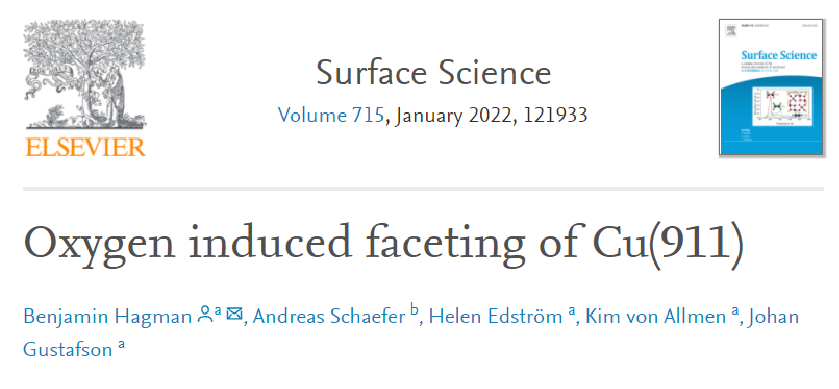
2nd November 2021
Congratulations to HELIOS PhD student Helen Edström and HELIOS PI Johan Gustafson who coauthored on the paper "Oxygen induced faceting of Cu(911)". The paper invesitgates the oxidation of the vicinal Cu(911) surface by O2 with in-situ Surface X-ray Diffraction. It has been published in Surface Science.
4-8th October 2021
We held the first online Lund retreat training week for our PhD students. The focus this year was instrumentation and detection. We created an exciting programme that included inspirational talks from Anne L’Huillier, Sverker Werin, Stefano Cabrini and Heiner Linke. Throughout the week leading experts from across Europe and the US gave lectures on different topics in laser, accelerator and particle physics as well as nano sciences. The afternoons were reserved for more applied training. The students learnt how to write science blogs for a public audience and how to run simulations using COMSOL. The science blogs will be published later this year. Watch our News section for the announcement.
The training week concluded with a BBQ at the DESY campus in Hamburg and a dinner at a golf club in Lund. This gave the students and academics the chance to meet in person at least once. We would like to thank all of the lecturers, speakers and our PhD students for making our first training week a great success.
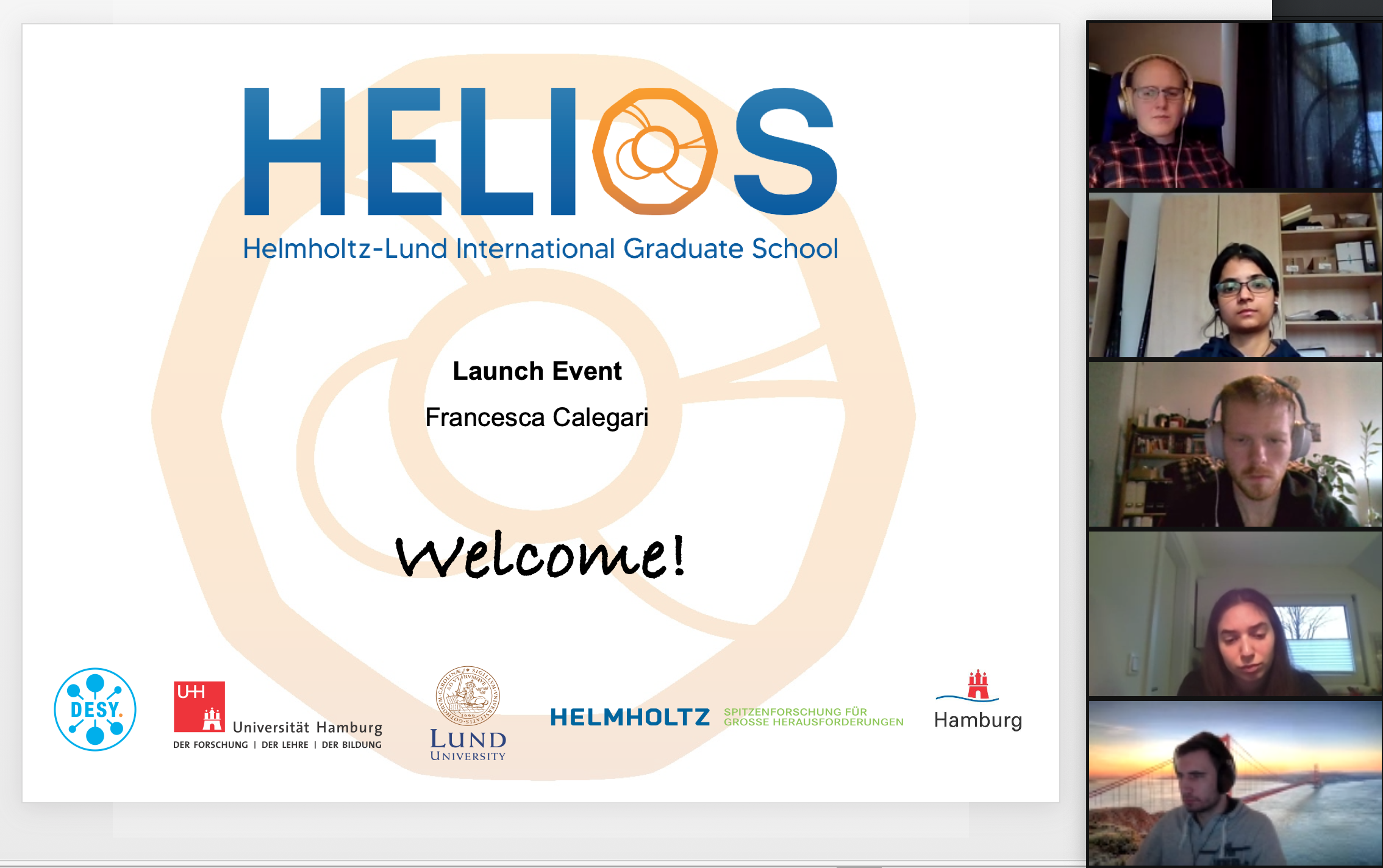
19th January 2021
HELIOS held its official virtual launch event. In the morning, directors Francesca Calegari and Mathieu Gisselbrecht introduced HELIOS to our first cohort of PhD students. This was followed by a number of talks about the instrumentation and analytical challenges in the fields of atomic, laser, particle and nano physics. In the afternoon, our students introduced their PhD projects, which vary from searching for dark matter to on-chip DNA analyses. The students also helped shaping the development of the HELIOS programme, by highlighting what skills and experiences they would like to gain during their PhD.
The event was a great success. We are very proud to have assembled this talented team with such a wide range of expertise, and it will continue to grow. We are looking forward to working together over the coming years and supporting and preparing our students for their future careers.


